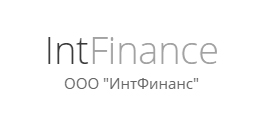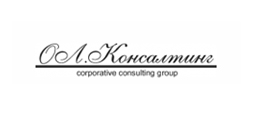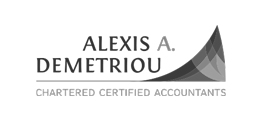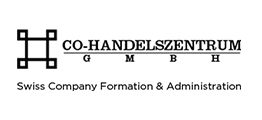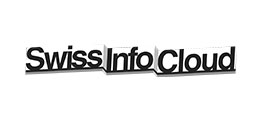
For a past few years many countries were active in implementing new standards for multilateral automatic exchange of financial information. As a result, governments across the world joined the Common Reporting Standard (CRS) in order to achieve tax transparency at a global level. The CRS imposes obligations both on governments as well as financial institutions to collect information about customers’ country of tax residency and to report account holder information to local authorities.
The Common Reporting Standard (CRS) entered into force on 1 January 2016. As of these days more than 100 countries have joined the CRS for automatic exchange of information on customers that are tax resident in co-signatory jurisdictions. The CRS main purpose is to increase the efficiency of tax authorities’ cooperation to ensure tax transparency across the globe. Especially, the Standard fights against offshore jurisdictions that may enable to hide some corporate, financial and tax information. Thus, tax authorities and governments strengthen to control income from foreign assets and capital.
What kind of financial information is exchanged?
With respect to financial information, the following information can be exchanged:
• transactions, accounts and deposits of customers;
• amount of obligations of an insurer who has entered into a contract of voluntary life insurance to customers or beneficiaries,
• amount of funds and value of property of persons held by a financial institution in accordance with the brokerage service agreement or trust management agreement of the financial institution,
• value of customer property, which is accounted for by a financial institution engaged in depository activities,
• retirement accounts,
• payments and transactions with deposits and other information.
Information to be exchanged and processed includes, without limitation, name, address, jurisdiction(s) of residence, TIN(s), date, place of birth, account number, account balance and value (including in the case of a cash value insurance contract or annuity contract, the cash value or surrender value) as of the end of the relevant calendar year or other appropriate reporting period. In case of any custodial account, information includes total gross amount of interest, total gross amount of dividends and total gross amount of other income generated with respect to the assets held in the account, total gross proceeds from the sale or redemption of financial assets paid or credited to the account during calendar year. In case of any depositary account, the information includes total gross amount of interest paid or credited to the account during the calendar year.
High value accounts (accounts exceeding the value of 1,000,000 Euro) are subject to enhanced review procedures. Such accounts are reviewed by a reporting financial institution electronically. In addition, paper record search applies to high value accounts. It should be noted that the following documents are reviewed during enhanced review procedure:
• most recent account opening contract and documentation;
• most recent documentation in relation to AML/KYC procedures;
• any power of attorney;
• any standing instructions to transfer funds currently in effect.
The agreements for which no financial information is required are credit agreements, bank or cell lease agreements, and bank guarantee agreements.
Do financial institutions participate in automatic exchange of financial information?
Financial institutions are obliged to participate in automatic exchange of financial information. Such organizations include:
• insurance company;
• credit institutions;
• brokers;
• investment entities;
• custodial institution;
• retirement funds and other institutions.
How information is exchanged?
The tax authorities of member states can now electronically transmit information about foreign persons who receive income in its country to their resident countries. The obtained information is systematized and used by tax authorities in their activities. The consent of citizens to exchange financial information is not required.
Financial institutions are required to obtain information from their customers and submit customer’s identification information electronically to the tax authority.
In exchange, tax authorities receive similar information from the states with which an agreement has been concluded.
What are the signatories to agreement on automatic exchange of financial information?
Currently there are more than 100 countries that joined the automatic exchange. These countries are: Albania, Andorra, Anguilla, Antigua and Barbuda, Argentina, Aruba, Australia, Austria, Azerbaijan, Bahamas, Bahrain, Barbados, Belgium, Belize, Bermuda, British Virgin Islands, Bulgaria, Canada, Cayman Islands, Chile, China, Colombia, Cook Islands, Costa Rica, Croatia, Curacao, Cyprus, Czech Republic, Denmark, Ecuador, Estonia, Faroe Islands, Finland, France, Germany, Ghana, Gibraltar, Greece, Greenland, Grenada, Guernsey, Hong Kong, Hungary, Iceland, India, Indonesia, Ireland, Israel, Isle of Man, Italy, Japan, Jersey, Kazakhstan, Korea, Kuwait, Latvia, Lebanon, Liberia, Liechtenstein, Lithuania, Luxembourg, Macau, Malaysia, Malta, Marshall Islands, Mauritius, Mexico, Monaco, Montserrat, Nauru, Netherlands, New Zealand, Nigeria, Niue, Norway, Pakistan, Panama, Poland, Qatar, Romania, Russia, Saint Kitts and Nevis, Saint Lucia, St. Vincent and the Grenadines, Samoa, San Marino, Saudi Arabia, Seychelles, Singapore, Saint Marten, Slovakia, Slovenia, South Africa, Spain, Sweden, Switzerland, Turks and Caicos Islands, UAE, United Kingdom, Uruguay, Vanuatu.
What countries do not participate in information exchange?
These countries are USA, Georgia, Thailand, Montenegro.
Recommendations: it is essential to make sure to be complied with CRS as it significantly impacts on business and tax policies of companies. As a result, we highly recommend to review the applicable legislation in order to identify compliance requirements of your personal or company’s resident legislation.

